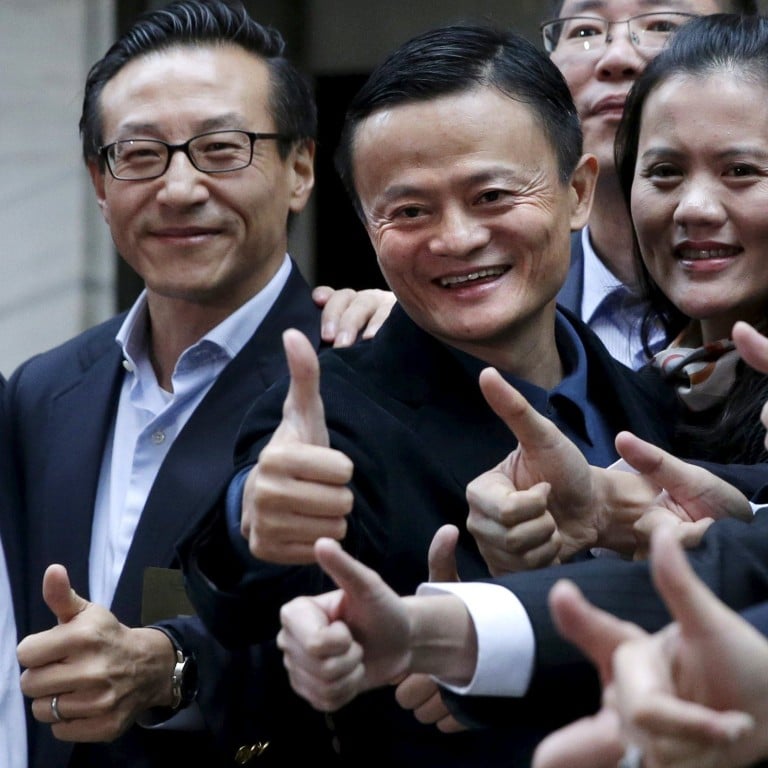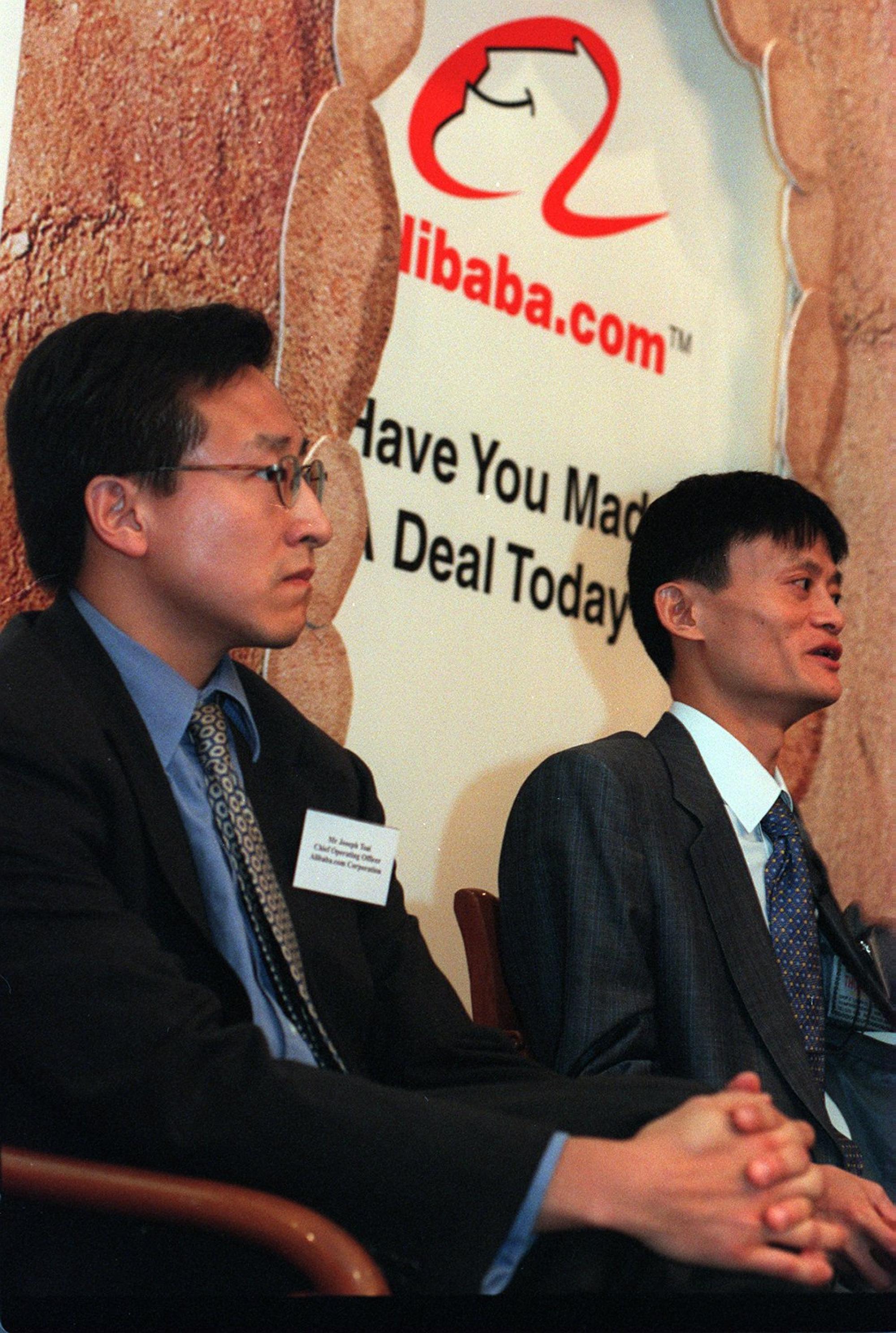
Exclusive | Jack Ma, Joe Tsai replace SoftBank as Alibaba’s largest shareholders by scooping up tech giant’s tumbling shares in Hong Kong, New York
- Ma, who retired as Alibaba’s executive chairman in 2019, bought about US$50 million of stock in the fourth quarter, raising his stake to more than 4.3 per cent
- Joe Tsai picked up US$150 million of shares through his family investment vehicle Blue Pool Capital Management
Ma, who retired as Alibaba’s executive chairman in 2019, bought about US$50 million of stock in the fourth quarter, raising his stake beyond the 4.3 per cent reported at the end of 2021, to become the largest single shareholder, according to sources familiar with the matter.
Joe Tsai, who took over Alibaba’s chairmanship from Daniel Zhang on September 10 last year, paid US$151.7 million for 1.957 million of Alibaba’s US-listed shares last quarter through his family investment vehicle Blue Pool Management, becoming the second-largest shareholder, according to a filing in New York. He owned 1.4 per cent of the company’s shares last year, according to Alibaba’s annual report.
Their aggressive buying amid an 11-per cent plunge in Alibaba’s stock price in the fourth quarter, underscored their confidence that the tech giant they established in Ma’s Hangzhou flat 25 years earlier would turn around its fortunes, sources said. It is the first time in nearly a quarter of a century for a Chinese shareholder to own the largest stake in Alibaba.

Tsai is also the chairman of the publisher of South China Morning Post, a wholly owned unit of Alibaba.
Jack Ma cedes control of financial software firm he bought in 2014
As Alibaba has turned from a poster child of value growth to a proxy of China economic slowdown and unpredictable regulatory risks, investors’ appetite for Alibaba has waned. It was dethroned by PDD Holdings, a much smaller e-commerce player in China, as the most valuable US-listed Chinese tech firm, prompting soul-searching among Alibaba employees about its problems and prospects.
Meanwhile, Tsai has made a comeback to the group and conducted a sweeping restructure of the giant, with the newly appointed CEO Eddie Wu Yongming, also one of the founding members of Alibaba, betting on artificial intelligence and improved service to recharge growth.

